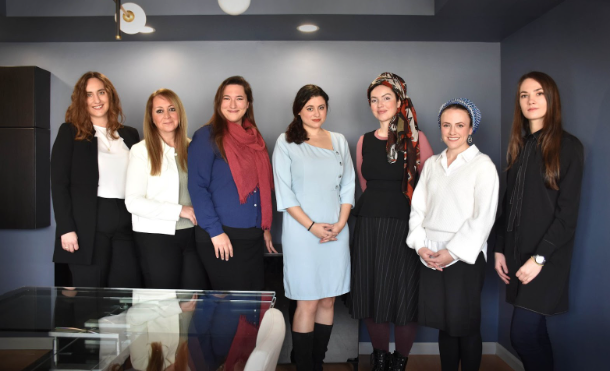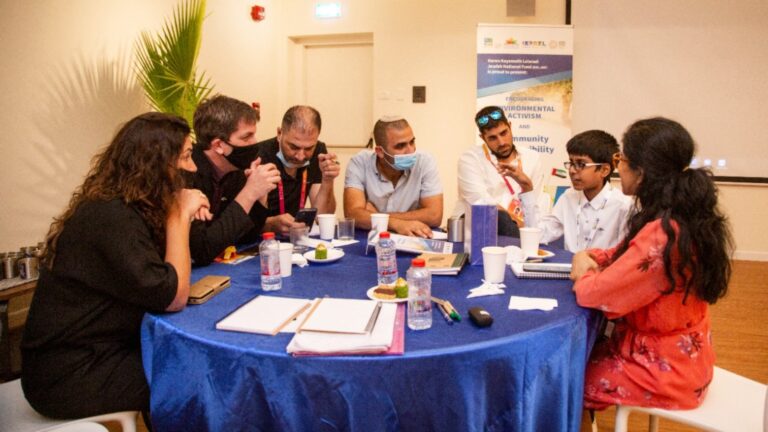Israel is a leader in many things, but one area you might not have considered is happiness. Israel is one of the top 10 happiest countries in the world and this is because of the ways Israelis practice happiness.
Yuval Kutz is an Israeli citizen and the president and co-founder of the Happiness Studies Academy. His role, along with that of co-founder Dr. Tal Ben-Shahar, and the programs the Happiness Studies Academy supports, reflect how the culture in Israel is happiness-focused. People often feel lost and don’t have a guide to stay on track in order to be our happiest selves but the Happiness Studies Academy aims to give people the tools to be happy and fulfilled. In order to help others understand him and his work, we invited Yuval Kutz to have a conversation with us about what he does and how people can use a holistic approach to finding happiness.
Q: How do you define happiness?
A: There are many definitions of Happiness, and each definition has both an objective and a subjective element to it. The definition that we subscribe to at the Happiness Studies Academy is a holistic one that associates Happiness with the five SPIRE elements: Spiritual, Physical, Intellectual, Relational, and Emotional wellbeing.
Q: What is the Happiness Studies Academy, how does one teach happiness and how did it start?
A: The Happiness Studies Academy was co-founded by Dr. Tal Ben-Shahar and myself about five years ago. While Tal is in charge of all the educational aspects I take care of the administration. How does one teach happiness is a question that I initially asked myself. Five years later, with thousands of students worldwide and the significant impact and change that I see in our students’ lives I get to see how happiness is being taught day in and day out. Recently we got accredited by the higher education committee in the US to deliver a full Master’s degree in Happiness Studies. This is the first time that Happiness Studies is recognized as an academic field. Our educational process focuses on both theory and practice, reflection and action.
Q: Where are your students from (both geographically and in their own lives)?
A: Our students come from more than 70 countries. We take great pride in our vibrant community of students. The certificate in Happiness Studies which is a year-long online course is delivered in English, Spanish, Portuguese, Chinese, Japanese and Hebrew. Wherever Dr. Ben-Shahar is traveling for his lectures around the world, we arrange small gatherings with our local students. Recently we held our annual retreat in Miami with a few hundreds of students joining us for two days of activities. Last year a group of students established the Happiness Studies Academy Alumni and Business Club aiming at helping students to pursue a career and work in this field.
Our students are taking the program either for their own personal needs, wanting to improve their lives and the lives of the people surrounding them, or for professional reasons, enriching their toolbox as coaches, therapists, educators of all sorts, HR managers and CEO’s.
Q: How did you get involved with the Happiness Studies Academy?
A: For the past 15 years, Tal has been one of my best friends. About five years ago Tal asked for my advice regarding a business endeavor he was involved in. I joined him for a couple of meetings, and we quickly realized that we don’t just play well together, we also work well together. I simply fell in love with the man, the content and especially the impact that this business has on people’s lives. I am grateful to be part of a business that is doing both good and well.
Q: In The Happier School Program, it mentions teaching meaningful living alongside educational studies. Can you please elaborate about how we can incorporate happiness into, say, arithmetic?
A: It is the other way around, the question should be how can we leverage other sciences and harness them in the service of our own and others’ happiness. What can literature, history, biology and other sciences teach us about the good life? Moreover, when you increase happiness levels in children (or adults for that matter), they become more creative, productive and engaged. They become better students and better human beings.
Q: What is the difference between happiness on the individual, interpersonal, organizational and national levels? And why do we need all of them; isn’t one of them enough?
A: Our lives and our wellbeing are affected by our individual choices, as well as by the environment in which we live. We cannot take care of our own personal safety or health while living in an unhealthy environment or an unsafe world, and it is the same with our happiness. We want to work for an organization that takes care of its employees’ happiness. And organizations as well as nations benefit when individuals enjoy higher levels of wellbeing—in the form of increased creativity, productivity, engagement, and health.
Q: Why hasn’t there been importance assigned to mental well being as an aspect of educational success in the past, what new studies demonstrated the need for something like it?
A: It has always been important but now we have science on our side. Over the past 20 years numerous research articles were published concerning our wellbeing and our happiness. Now with the help of science we can better deal with individual and collective challenges, and offer tested interventions to help us live a happier life.
Q: What is your favorite/the most meaningful part of the work you do?
A: By far, it is the gratitude letters that we are getting from the students graduating from the “Certificate in Happiness Studies”. We receive words of thanks from those who were able to take their already thriving life and business to an even higher level of flourishing. We hear from individuals who experienced hardships and difficulties, and, using the new tools they acquired, were able to transform their lives and regain their footing. These letters fill me up with joy, often bringing tears to my eyes.
Q: If someone were to ask you how to be happy, what would you tell them their first step should be?
A: The shortest, most immediate and very effective intervention that I would offer is definitely: Exercise. This straightforward intervention is as powerful as any anti depression medicine out there.
The first step to happiness though is understanding what happiness is and what it looks like. Understanding that like any other aspect that we want to improve in our lives there are no shortcuts, it takes time and work. Unfortunately there is no secret.
Consistent small changes taken in the right places will have an unexpected effect.
Q: What is the overall goal of your work? What would happiness look like on a bigger scale per sé?
A: We are here to have an impact. We are trying to reach as many people as possible. The Happiness revolution as we see it is a shift in priorities. Yes, people want to be happy, but there is a big difference between paying lip service to it and really wanting it. Really wanting means that they are willing to put in the necessary effort to get the desired results.
In Israel, creativity and entrepreneurship are encouraged more in schools and this parallels the ideas the Happiness Studies Academy promotes. Israel leads in health and happiness while ranking lower in income and education and this is because there are techniques built into Israeli culture to keep Israelis focused on happiness regardless of other factors like salary or schooling. According to Yuval Kutz, the happiness studies provide a scientific-based approach from positive psychology on how to achieve happiness and stay happy. As part of an organization that is at the forefront of happiness studies, his work with Dr. Tal Ben-Shahar, co-founder of the Happiness Studies Academy, provides a guide on what to focus on in order to become a happier and a more fulfilled person. Life is a crazy and complicated thing and we all have times where we go off track. The study of happiness helps to provide steps to use and fall back on. The world is impacted one person at a time, and how better to change the world by improving yourself.
Groundbreaking Israel content is developed by ISRAEL21c’s Digital Ambassadors.
Eliza Aretz is a student majoring in psychology at University of Central Florida. After college they hope to pursue a career in clinical psychology.
Sammy Friedman is a senior studying Psychology at Yeshiva University in New York. After his undergraduate studies, he hopes to pursue a Masters in Mental Health Counseling.
Elianna Sokoler is a student in Barrett Honors College at Arizona State University. She is majoring in political science and minoring in communication.
Rebecca Stolarov is a senior studying Psychology at the University of Maryland, with a minor in International Development and Conflict Management. After college she is moving to Israel and joining the IDF.














